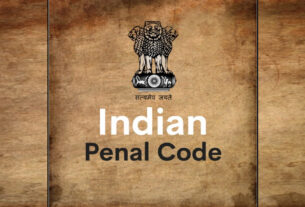Imagine the internet as an iceberg. The part you see above the water is just a fraction of what’s really there. Among the hidden depths lies a mysterious realm known as the “dark web.” Unlike the websites we use every day, the dark web isn’t indexed by search engines and can’t be accessed with regular browsers like Chrome or Firefox. It’s like an encrypted corner of the internet, where anonymity and secrecy reign.
Think of it this way: the surface web, which you use daily, is like the bustling streets of a city where everything is out in the open. You can shop, chat, and share information openly. The deep web is the part of the internet that’s not indexed by search engines and contains things like private databases and password-protected sites. This is like the buildings behind those bustling streets – not secret, just not easily accessible.
Now, the dark web is like the underground tunnels of this city. It’s intentionally hidden and often requires special tools, like the Tor browser, to access. Tor stands for “The Onion Router,” and it helps users stay anonymous by bouncing their internet traffic through a series of volunteer-operated servers.
People use the dark web for various reasons. Some seek privacy in countries with strict internet censorship. Others use it for legitimate purposes like journalists communicating with sources in oppressive regimes. However, the dark web is also a place where illegal activities can take place due to its anonymity. You might find marketplaces for illegal drugs, stolen data, fake passports, and even hacking services.
Navigating the dark web is like entering a digital black market. It’s not somewhere you stumble upon accidentally; you have to actively seek it out. And just like in real life, not everyone you meet in this hidden world has good intentions.
Remember, while the dark web has some legitimate uses, it’s essential to approach it with caution. Law enforcement agencies around the world monitor this space to combat illegal activities. It’s generally best to stick to the surface web for your online activities – the part of the internet that’s familiar and open. Think of the internet like an iceberg – fascinating and vast, but also with hidden dangers lurking beneath the surface.
Accessing the dark web requires special tools and precautions due to its nature and potential risks involved. However, I want to emphasize that the dark web is associated with illegal activities, and accessing it can expose you to various dangers. If you’re still interested in learning about how to access the dark web for educational purposes, here’s a general guideline:
- Download the Tor Browser: The Tor browser is a privacy-focused web browser that allows you to access websites on the Tor network. It’s designed to keep your identity and online activities anonymous. You can download it from the official Tor Project website.
- Install and Configure: Install the Tor browser on your computer or device. Once installed, launch the browser and follow the setup instructions. The browser will automatically connect to the Tor network, which helps mask your IP address and route your traffic through a series of nodes.
- Explore .onion Websites: The dark web is primarily accessed through websites with “.onion” domains. These websites are not indexed by regular search engines. You can find directories and search engines specifically designed for the dark web to help you discover different .onion websites.
- Be Cautious: Remember that the dark web is associated with illegal activities and potentially harmful content. Even if you’re just curious, you might come across illegal marketplaces, scams, or explicit content. Be cautious and avoid engaging in any activities that may compromise your safety or legality.
- Privacy and Security: While the Tor browser provides anonymity, it’s not foolproof. There are still risks associated with using the dark web, including potential exposure to malware, scams, and surveillance. Ensure that your device’s security software is up to date and exercise caution.
- Legal and Ethical Considerations: Accessing the dark web doesn’t necessarily mean you’re doing something illegal, but engaging in illegal activities is against the law. It’s important to know and respect the laws of your country and the potential consequences of your actions.
- Use for Legitimate Purposes: While there are illegal activities on the dark web, there are also legitimate and privacy-focused websites. Some journalists, researchers, and activists use the dark web to communicate safely in countries with heavy internet censorship.
In summary, accessing the dark web requires using the Tor browser, but it’s crucial to exercise caution and be aware of the potential risks and legal implications. If you’re interested in learning about online privacy and security, there are plenty of legitimate resources available that can provide valuable insights without venturing into the dark web.
Related Queries
kekma.ga google
dark web report
www.dark web.com login
google dark web report
dark web report google one
dark web report google
darkweb report
google one dark web report
google dark web
# Bhalakatha
#mind plugin
#prayas





